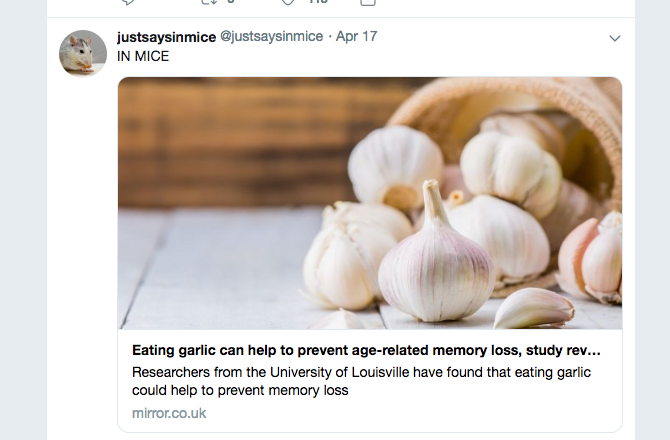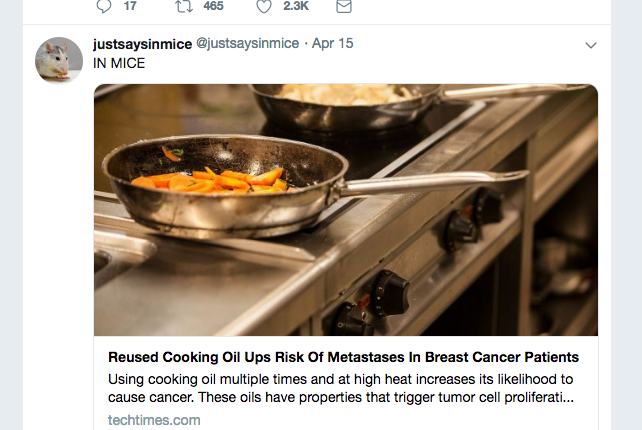In mice
A few years ago I briefly ran a Twitter account that retweeted science news stories with, as it might be, “In mice”, “In rats”, “In cell cultures”.
Now someone else has a new (and hopefully longer-lasting) effort: @justsaysinmice. For example
and
The point isn’t that there’s something wrong with mouse research. These types of basic science can be enormously valuable. The problem is the headlines (and ledes and first few paragraphs and…) which make much stronger claims about health than the research supports.
Someone seeing “Reused cooking oil ups risk of metastases in breast cancer patients” should be able to assume that that’s what the study found — or even without the causal language, that the study involved metastases in breast cancer patients, rather than tumours injected into mice.
Scientists should be objecting when their work is mischaracterised that way, but they mostly don’t. Some of them even encourage it. Readers should also object, but again, they don’t and many of them encourage it.
Thomas Lumley (@tslumley) is Professor of Biostatistics at the University of Auckland. His research interests include semiparametric models, survey sampling, statistical computing, foundations of statistics, and whatever methodological problems his medical collaborators come up with. He also blogs at Biased and Inefficient See all posts by Thomas Lumley »

